How to Improve Your Client’s Search Rankings with White Label SEO Services
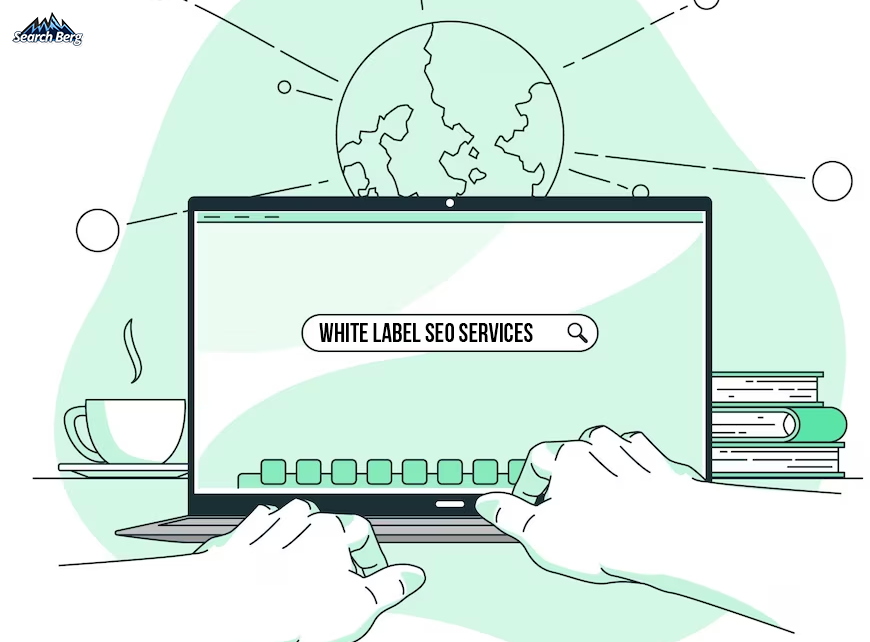
SEO isn’t what it used to be. At one point, it was all about keyword stuffing, exact match domains (EMDs), and link directories. These tactics now belong in a museum next to dial-up modems and floppy disks.
Today, SEO is a complex, multidisciplinary approach that blends technical expertise, compelling content, and savvy marketing. And while we wish this blend would magically drop out of the sky and land into our hands, that’s not exactly the case.
If you want to master the art of SEO in 2023, you must invest your time and resources into this domain. This is easier said than done. Thousands of companies end up washing valuable capital down the drain in attempts to learn the ropes. SEO isn’t a crash course; it’s a doctorate degree that takes years to complete.
Let’s bring out the million-dollar question: how can you give your clients spectacular results without emptying out your bank account? It’s simple. You turn to white label SEO services. Sounds like a strange new phrase you’ve never heard before? That’s what this blog is for. Stick with us as we unpack white label SEO, delve deeper into its benefits for marketing agencies, and help you leverage it like a seasoned pro.
Let’s get the ball rolling!
What is White Label SEO?

If you’ve ever bought a supermarket’s own-brand cereal, you’ve already been part of the white label process. The supermarket didn’t make the cereal; they just put their name on a product made by a third-party manufacturer.
This is white label work in a nutshell. It’s the concept of rebranding a product or service produced by another company to make it appear like your own.
So, what happens when we apply this concept to the world of digital marketing, particularly SEO? Enter white label SEO. At its core, white label SEO involves two parties: an SEO provider and a reseller.
The provider does all the heavy lifting. They complete all the back-end SEO work, like keyword research, link building, on-page optimization, and more. Think of them as a bunch of ridiculously talented invisible puppeteers who pull the strings behind the scenes. That’s us: Global-marketing Inc.!
The reseller is typically a digital marketing agency or consultant; that’s you in this equation. They sell these services to their clients under their own brand name. The client is none the wiser that their SEO work is outsourced.
White label SEO services are a win-win for both parties involved. The provider gets to do what they love and excel at (SEO) without worrying about front-end client management or business development. The reseller gets to expand their service offerings and impress their clients with top-notch SEO results without recruiting an in-house team or spending hours upskilling.
Your clients will be able to access expert SEO services they may not have been able to afford or manage in-house. And since white label SEO resellers are usually specialists in their field, the quality of work is typically tremendously high.
Of course, resellers shoulder the responsibility of finding the right white label SEO agency with the right experience, expertise, skillset, tools, work ethic, and track record.Take your time, do your research, and make the right call.
There’s always good and bad in every industry. If you’re looking for a plumber, you’ll always find a bunch of bona fide experts and some phonies who use shoddy practices. If you’re on the hunt for a mechanic, you’ll encounter a mix of seasoned professionals and a few who just tinker around and leave your car in worse shape than before.
The white hat SEO landscape is pretty similar. When you stumble upon SEO virtuosos who know exactly what they’re doing, you’ll make magic happen.
Let’s quickly review the difference between regular ol’ in-house SEO and white label SEO.
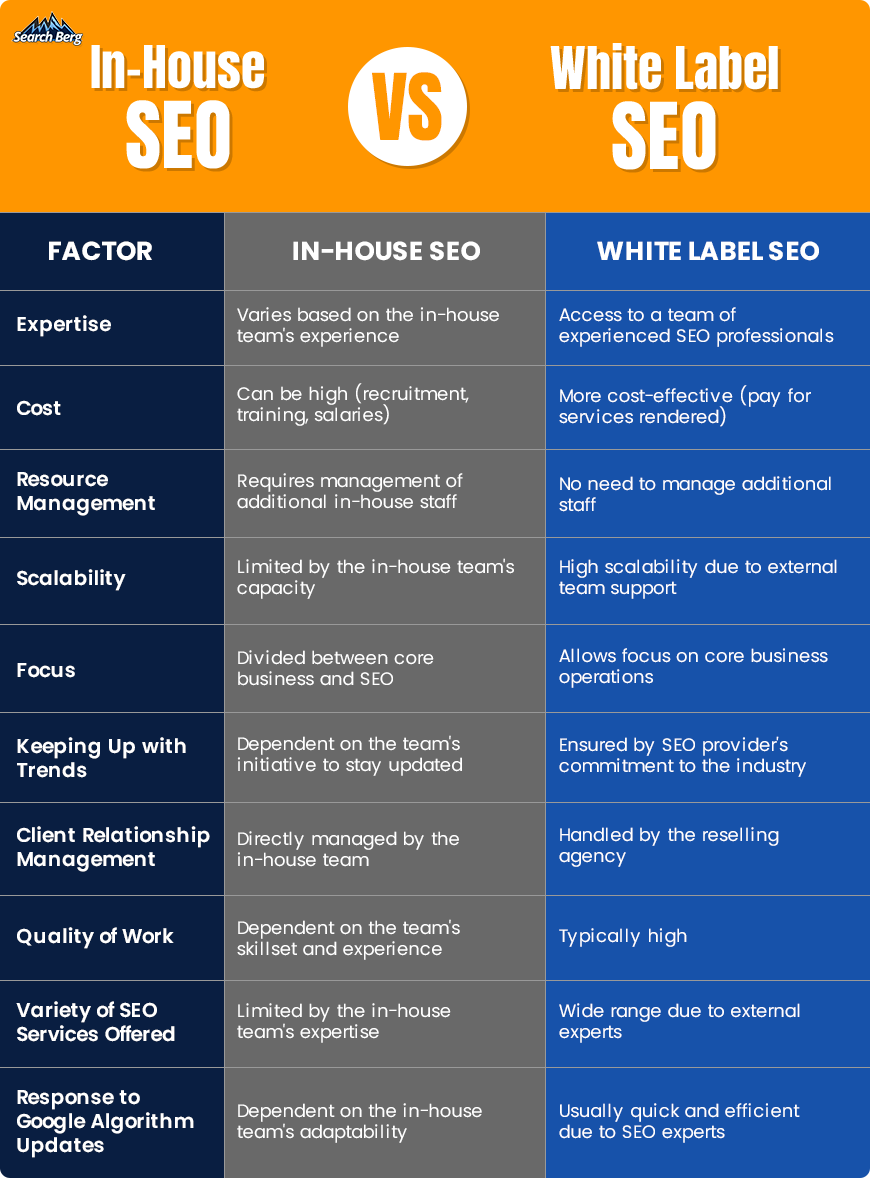
See what we mean?
Now that we’ve covered the basics and you have a pretty good understanding of what white label SEO is all about, let’s turn our attention toward rankings.
Your clients aren’t coming to you to rank on the 14th or 15th Google SERPs; they’re hiring you precisely because they want to dominate the first few search results on the first SERP.
Stellar Google rankings mean spectacular online visibility, high traffic, more clicks, more calls, roaring conversions, enviable profit, and consistent growth. Once you tip the first card (rankings), the rest of the cards will start falling into place. It’s like the domino effect!
As the reseller, you’re responsible for helping your clients climb Google SERPs at lightning speed. Let’s understand how you can achieve this.
1. Thorough Keyword Research

In the great adventure novel of SEO, keyword research is our Sherlock Holmes: the master detective who uncovers secret clues that lead us to the hidden treasure of high rankings.
The process of hunting down the right words and phrases can seem like a mystery to the uninitiated. But in the hands of an adept white label SEO agency, it becomes a riveting quest filled with intrigue, strategy, and, well, a good deal of cleverness!
What is Keyword Research and Why Does It Matter?
Keyword research is the art (and science) of identifying the specific terms your clients’ potential customers enter into search engines. This process involves a keen understanding of your clients’ audience’s industry and the mysterious workings of search engines.
Why does this matter? Well, think of it this way. If your client’s website is a shop, then keywords are the signposts that guide customers to it. The right keywords can bring a horde of eager shoppers to your client’s doorstep. The wrong ones? Your client’s shop may as well be located in the wilds of Siberia.
The Smart Way to Perform Keyword Research
Now, how do you go about conducting keyword research? Or rather, how will your SEO provider take the reins? It’s all about using the right tools and techniques.
- Understanding Your Client’s Audience
The first step is delving into the minds of your client’s audience, including their needs, language, and search behavior. This information is the compass that should guide your keyword research efforts.
Start by creating comprehensive buyer personas. These are generalized, fictional representations of your ideal customers based on market research and data about existing customers. They typically include demographic information, behavioral patterns, motivations, and goals.
Buyer personas can help you determine the most relevant keywords your client’s audience may use in their search queries.
Why should you go above and beyond to understand your audience better? It’s simple. These insights will help you anticipate their needs and the kind of search queries they’ll run.
Are they novices who generally use basic, broad terms? Or are they experts who use more technical jargon? The choice of keywords will depend on these insights.
Search intent is another vital aspect; think of it as the “why” behind queries. Is the user looking to buy something (transactional intent)? Or are they looking for information (informational intent)?
Keywords also vary based on search intent. For instance, a user with transactional intent may use the keywords “buy” or “price” in their search query. Understanding user intent will go a long way in helping you craft a kickass keyword strategy.
And then there’s the matter of localization. If your client serves a local market, you must optimize your local search terms. This may mean including city or neighborhood names in your keywords or using terms popular in that region.
- Competitor Analysis
Playing detective involves keeping an eye on the competition. This is where competitor analysis enters the picture.
Start by identifying your client’s main competitors. Are they direct competitors operating within the same industry and region? Or indirect ones who offer a substitute or similar products?
Follow this up by delving into their website. Which keywords are they ranking for? Are they currently missing out on any high-volume keywords?
All done? It’s time to investigate their backlink profiles. Which websites are linking back to them? What kind of content earns them the most backlinks? High-quality backlinks, as you know, are a significant ranking factor. By understanding your competitors’ backlink strategies, you can identify new link building opportunities for your clients.
Content analysis is another critical aspect. Which topics are they covering? How are they structuring their content? Are they using multimedia like infographics, videos, etc.? These answers will help you discover new content ideas and identify content gaps.
- Utilizing Keyword Research Tools
There’s a whole arsenal of keyword research tools at your disposal. Google Keyword Planner is the most powerful free tool up for grabs; it’s like getting a treasure map directly from the treasure keeper!
This genius little tool provides valuable insights into keyword volumes, difficulty scores, and more. Want to figure out the search volume for a specific keyword? Done. Want to discover new keywords related to a particular topic? Done x2. Keen on understanding seasonal trends around certain keywords? Triple done.
See how omnipotent this tool is?
While we love Google Keyword Planner, we must reiterate that it’s a great starting point, not a done-and-dusted tool. Once your SEO efforts start materializing, it’ll eventually be time to segue into a more robust, power-packed keyword research tool.
Speak with your white label SEO agency to switch to a paid app that provides more detailed insights. At Global-marketing Inc., we’ve developed our own cutting-edge tool as part of our white label SEO services.
- Long-Tail Keywords
SEO is a bit like high school. There are the popular keywords: the ones that everyone knows and searches for (akin to the cool kids who seem to hog all the limelight). And then you have the long-tail keywords: the wallflowers at the SEO dance. They may not be as flashy or eye-catching, but they brim with potential nonetheless!
Long-tail keywords are three to four-word phrases that are highly relevant to your client’s product or service. For instance, instead of “flower shop,” a long-tail keyword would be “best carnation flower shop in Brooklyn.” While these keywords may not get the highest search volume, they tend to attract more qualified, ready-to-convert traffic. It’s quality over quantity, and in the world of SEO, that’s a trade-off worth making.
By focusing on long-tail keywords, you can help your clients carve out their own niche in the crowded digital market. Users who search for these specific phrases are often further down the sales funnel; they’ve moved past the general browsing stage and know exactly what they want. This makes them more likely to convert.
Keyword Research for Resellers: What’s My Role?
As a white label SEO reseller, you may often feel like the conductor of a grand orchestra directing a talented group of musicians (in this case, SEO experts) but not necessarily playing an instrument yourself.
When it comes to keyword research, you’re not the one diving into the sea of keyword databases or hunting down long-tail phrases. So, what exactly is your role in this keyword symphony?
- Set the Stage: Understand Your Client’s Needs
As the maestro of this operation, you’re in a unique position to understand your client’s needs intimately. You’re the one having conversations with them, discussing their goals, understanding their target audience, and diving deep into their industry. This information is vital for effective keyword research.
Share this intel with your white label SEO agency, provide context, and help them tune their instruments (or keyword tools) to the right pitch.
- Conductor’s Score: Guide the Keyword Strategy
As your white label SEO provider dives into the technical side of keyword research, serve as the guiding hand that steers their strategy. Based on your understanding of your client’s objectives, you can help identify the types of keywords that would be most beneficial.
Is your client aiming for quick wins? Long-tail keywords with less competition may be the way to go. Are they looking to build a strong foundation? It may be worth competing for those high-volume, industry-specific keywords. Your role is to ensure the keyword strategy aligns with your client’s vision to a tee.
- The Applause: Evaluate the Results
This is when the curtain rises, and the spotlight shines on you. It’s your job to evaluate the performance of the keywords chosen by your SEO provider.
Are they driving traffic? Are they earning conversions? Are they improving the website’s search ranking? Keepa close eye on these metrics and ensure the keyword strategy delivers the expected results.
- Encore: Fine-Tune the Strategy
Keyword research isn’t a one-and-done process. Like a musical performance, it requires fine-tuning, practice, and sometimes, a bit of improvisation.
If certain keywords aren’t hitting the right notes, don’t be afraid to switch up the tune. As the reseller, you play a critical role in continuously refining the keyword strategy based on performance, client feedback, and market changes.
2. On-Page Optimization
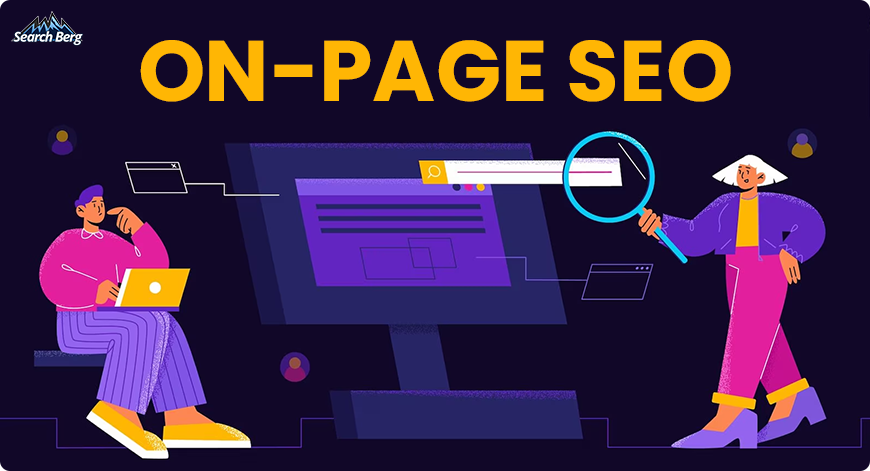
On-page SEO is the art of rolling out the digital red carpet for web users and ensuring every inch of your client’s website shouts, “Welcome, we’ve got what you need!”
It’s all about sprucing up your digital storefront to make it attractive to search engine bots that crawl and index your site and human visitors who turn into leads, customers, and ambassadors for your brand.
How can you leverage this savvy strategy to boost your clients’ SERP rankings? Let’s break it down.
- Shop Window: Title Tags and Meta Descriptions
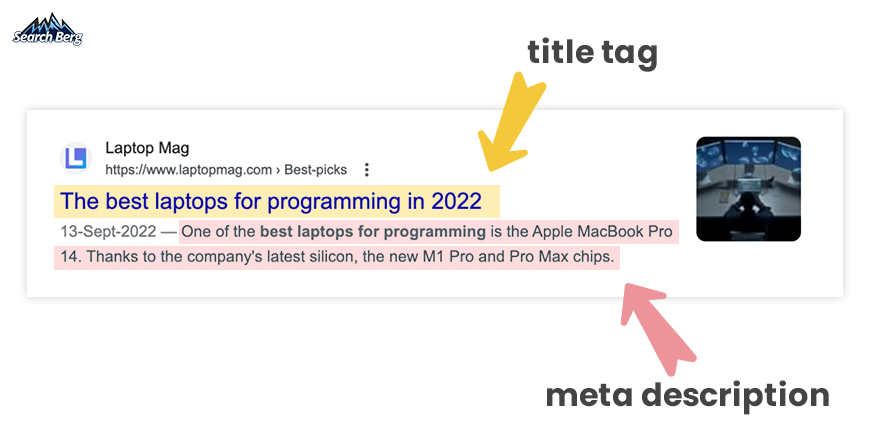
A webpage’s title tag and meta description are like a shop’s window display. They’re the first thing potential customers (and search engines) see when they walk by your shop on the digital street (read: SERPs).
Engaging, keyword-optimized, and relevant meta titles and descriptions can turn uninterested web users passing by into enthusiastic clicks.
- Product Labels: Headings and Subheadings
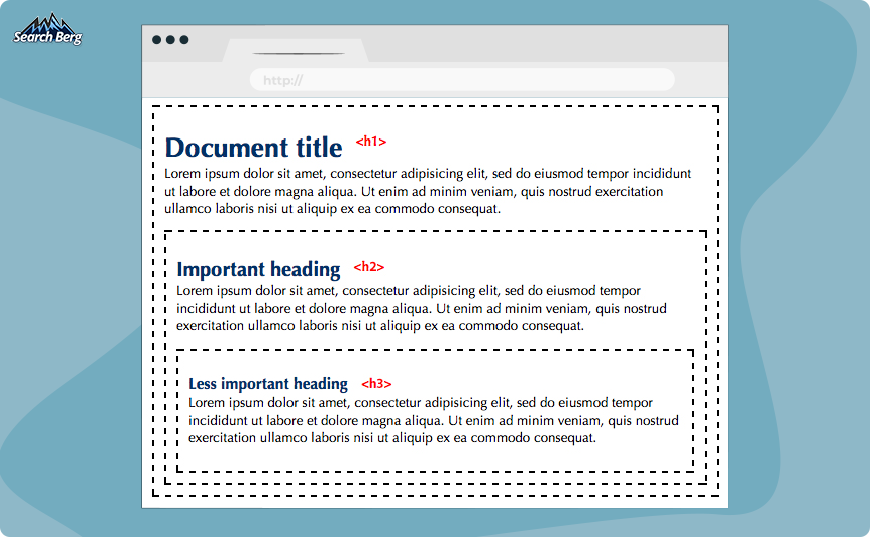
Once inside the shop, customers use headings and subheadings to find what they’re looking for. Well-structured headings and subheadings make it easier for both web users and search engines to understand what each section of a page is about. And, of course, it’s another golden opportunity to cleverly insert those carefully researched keywords!
- In-Store Guide: Internal Links
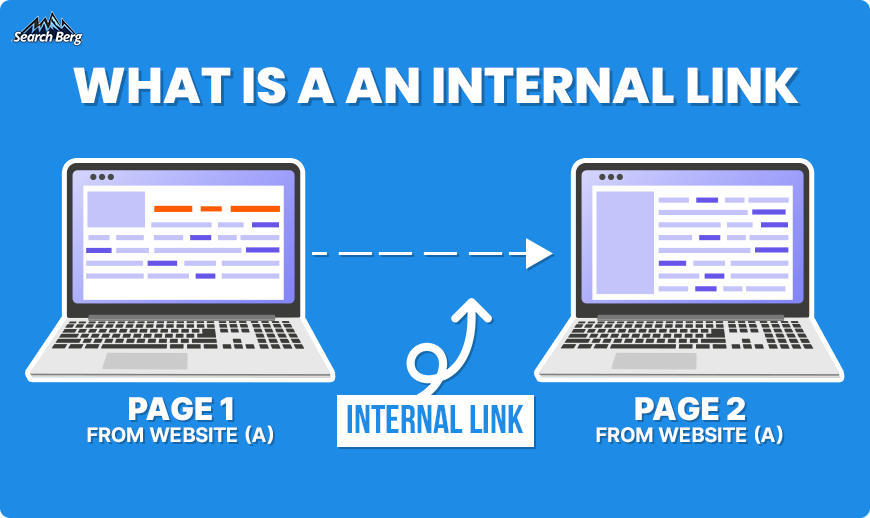
Imagine trying to find a specific product in a massive department store without any signs or store assistants to guide you. Frustrating, isn’t it? Internal links serve as guides; they help visitors navigate your website and find the information they seek. They also help spread link equity around your site (a big thumbs-up in the eyes of search engines).
- Product Descriptions: Content Quality
Just as the quality of products in a store determines its reputation, the quality of the content on a website significantly impacts its search rankings.
High-quality, unique, and engaging content that provides value to web users is a key ranking factor. It helps establish your client’s site as a reliable resource, attract more visitors, and encourage sales.
Here’s an example:

- Checkout Counter: Call-to-Action

What good is a store if customers wander around but never make a purchase? A strong call-to-action (CTA) is the checkout counter of your website. It guides visitors to take the desired action: make a purchase, sign up for a newsletter, download a resource, and so on.
On-Page Optimization for SEO Resellers: How to Ensure Everything Is on Track
On-page SEO is the silent yet foundational element that holds your clients’ online visibility and success. As an SEO reseller, you’re entrusted with the critical responsibility of ensuring this foundation is solid (even though the actual construction is done by a white label SEO company).
How can you ensure your on-page optimization efforts are on track? Here’s your roadmap:
- Understand SEO Basics
Knowledge is power. Understanding the basics of on-page SEO will empower you to better oversee the process. This doesn’t mean you should become an SEO expert overnight. It just means it’s time to familiarize yourself with core concepts like keyword optimization, meta tags, URL structures, and internal linking.
- Review SEO Reports
SEO is as much about data as it is about keywords. Carefully review the SEO reports provided by your white label SEO agency to track progress. This includes key performance indicators like organic traffic, bounce rates, and conversion rates.
- Request Client Feedback
Stay in touch with your clients and actively request their feedback. Make sure your white label SEO service provider is open to making changes based on this feedback. No matter how extensive, complex, or intricate the feedback may be, your provider should handle it like a pro, no questions asked. If they’re hesitant to take the reins, you may want to switch gears.
3. Engaging Content Creation

Engaging content creation is the art of spinning tales in a way that captivates the audience and convinces the stern-faced gatekeepers of search engines to throw their doors open.
But creating engaging content is more than just spinning a good yarn. It’s about understanding your audience and weaving a narrative that addresses their requirements and pain points while keeping them hooked.
As a white label SEO reseller, it’s your job to ensure the content created for your clients strikes this delicate balance. Here’s how you can make that happen.
- A Strong Narrative: The Plot Twist
Every good story has a gripping plot. Similarly, every piece of engaging content needs a strong narrative. This narrative should revolve around your client’s brand’s core message. It should provide value, solve a problem, or answer a question.
As it satisfies these core requirements, it should still be entertaining, informative, and unique. Keep in mind that the sea of content is filled with, well, content. Only the most interesting stories float to the top, while forgettable narratives sink to the bottom.
- SEO Best Practices: The Magic Spell
As a white label SEO reseller, you’re armed with the magic spell of SEO best practices. While your content should be engaging and valuable to your audience, it should also be optimized for search engines.
This means integrating keywords naturally, using headings and subheadings effectively, and ensuring all images have alt text. The magical blend of user-focused content and optimization makes for truly engaging content.
- Regular Updates: The Sequels
Your audience’s needs and interests are evolving on a regular basis. If you want to keep them happy and hooked to your brand, supply fresh content and regularly update it.
Search engines love fresh content. It goes without saying that your SERP rankings will also neaten up as your content game reaches new heights.
The Ultimate White Hat SEO Content Quality Checklist

A Reseller’s Role in the Content Creation Process
As an SEO reseller, your main role may not be creating content but facilitating it. However, your input is still vital in the content creation process.
Sure, you’re not penning the words yourself, but you’re a pivotal piece in the puzzle of content creation for SEO.Let’s look at how you fit into the content creation process as a white label SEO reseller.
- Keyword Recommendations
While your white label SEO service provider will perform comprehensive keyword research, you, as a reseller, can offer valuable input. You may be privy to industry jargon, audience language preferences, and specific terms your clients want to rank for. Equip your white label SEO company with these details to ensure the content is optimized effectively.
- Content Strategy Approval
A significant part of your role will be approving the content strategy designed by the SEO agency. This strategy will cover aspects like blog topics, long-form content, social media posts, and more.
Since you know your client’s business well, your insights can help fine-tune this strategy to align perfectly with your client’s needs. Yes, let your SEO provider take the reins by all means. But use your own insights to judiciously approve of or disapprove of the content.
Before the final content reaches your client, you should have reviewed and vetted it as closely as possible. And you should have also requested the appropriate revisions. If you fail to do this, your client may keep returning with complaints, no matter how good the work is.
This frequently happens when the SEO reseller fails to communicate the client’s niche requirements to the white label SEO agency. As we mentioned earlier, you’re the one who’s having all the essential conversations with the client, not your SEO provider. If you fail to communicate these insights effectively, things could go wrong.
Stay on top of your game, think critically, and keep your client’s best interests in mind. Many SEO resellers think hiring a white label company will absolve them of any responsibilities. This isn’t the case. You’re still required to put in effort, communicate actively with your client, and relay this communication to your SEO provider.
Keep it at, and you’ll struggle to find even a single bump in the road. Let complacency wash over you and the road will suddenly become bumpier than a cobblestone path in a medieval village. The choice is simple, and, most importantly, the choice is yours.
- Thinking Outside the Box
Your white label SEO provider has already put their creative hat on. It’s time for you to do the same!
If you want to provide quality content to your clients, you’ll have to maintain a high level of creativity, uniqueness, and innovation. The content you provide cannot be run-of-the-mill; it must stand out from the crowd and hold its own. This is easier said than done. It’s a big responsibility that should be shouldered by both the SEO provider and the reseller.
Keep thinking outside the box, coming up with new ideas, getting better, and bringing something new to the table each time. Your client should be impressed with the content in each cycle. And this will only happen when you add a dash of ingenuity to your work!
We recommend having comprehensive meetings with your SEO provider and collectively exploring new territories. How will your client’s audience stay on its toes? Explore, experiment, and excite! You’ll end up capturing their audience’s attention and giving Google exactly what it wants: originality. The outcome? Your client’s search rankings will look more promising than ever.
4. High-Quality Link Building
Search engines, like a wise old sage, can differentiate between a hastily built, superficial relationship and a mutually beneficial, meaningful one.
They value high-quality, natural, relevant links that provide value to the user. These quality links act like a hearty recommendation or a nod of approval in the eyes of search engines; they help boost your client’s authority and ranking.
But how can you ensure the link building plans in place on your client’s behalf are high-quality and effective?For starters, understand the anatomy of a good backlink.
We’ve said this before, and we’ll keep reiterating it: you can’t expect your SEO provider to do everything while you enjoy a hot bath in the azure waters of Iceland’s Blue Lagoon. We wish!
They’ll take care of most of the heavy lifting, yes. But you must bring your own SEO knowledge to the table to ensure everything is being done to perfection.
Let’s break down the most prominent aspects of a good backlink.
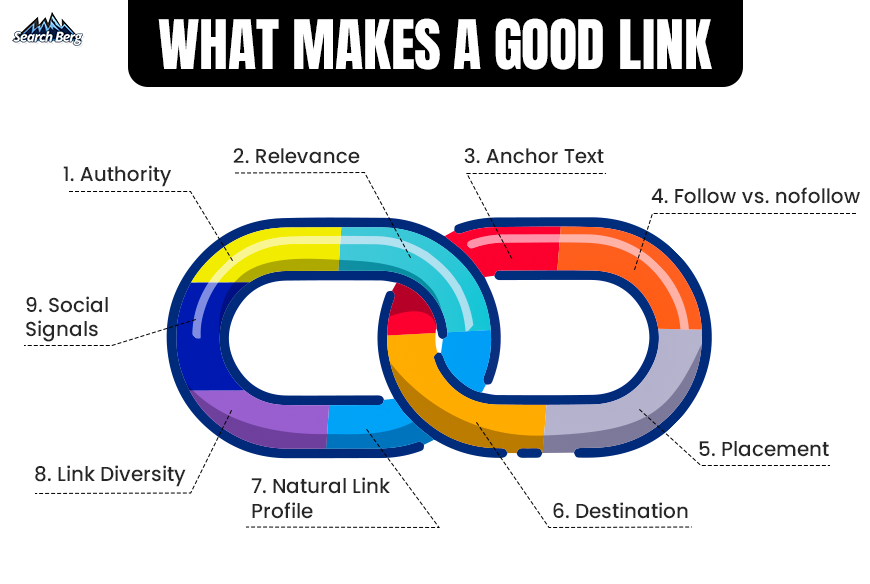
In addition to developing a good grasp of these factors, check these boxes off the list as well:
- Emphasize Relevance
Link building isn’t just a numbers game; relevance is actually the name of the game. Think of each link as a bridge. A functional bridge must connect two related points. Otherwise, it may lead users astray, cause confusion and frustration, and achieve nothing. The relevance of the sites linking back to your client’s website is essential.
As an SEO reseller, you need to emphasize the importance of this relevance to your white label SEO service provider. You can’t just build links for the sake of developing more connections; the quality of these connections matters immensely. Sites that link back to your client’s website should share industry, interest, or audience overlap.
Let’s say a renowned fashion blogger suddenly links to a heavy machinery manufacturing site. This would be perplexing for readers and could be seen as suspicious by search engines. However, a link from a construction blog to your client’s heavy machinery site? Now, that’s a match made in heaven. Your role here is to ensure the SEO agency isn’t just casting a wide net but fishing in the right waters.
- Seek High Authority Sites
Backlinks from high-authority websites can be a game-changer for your client’s search rankings. These are industry leaders and experts that everyone respects and listens to. A backlink from these sites is like a five-star review; it carries significant weight.
However, building such links requires diligent effort, excellent content, and a dash of finesse. As a reseller, you should encourage your SEO provider to target these high-authority sites for link building. They may do this via guest posting, resource link building, broken link replacement, or other creative methods of earning coveted backlinks.
- Advocate for Natural Link Placement
The digital world appreciates the beauty of organic growth. Search engines are particularly fond of naturally occurring, organic links. These are the kind of links that are genuinely earned, not planted or forced. They naturally fit within the content and provide value to the audience.
As an SEO reseller, you must ensure that your white label SEO service provider isn’t just stuffing links into content willy-nilly. The placement of the link should make sense contextually. It should flow with the content, almost as if the content was written with that link in mind.
This kind of natural link placement enhances user experience, keeps readers engaged, and sends positive signals to search engines about the quality of the link. It’s about making sure that the links are woven into the content fabric rather than awkwardly tacked on.
By advocating for relevance, high-authority sites, and natural link placement, you’ll help create a high-quality link profile for your client. It’s a challenging task, for sure. But once you get it right, you’ll enjoy a significant boost in your client’s search rankings.
- Review Anchor Text
Anchor text is the Cinderella of the SEO world: often overlooked but critical to the story. It’s the clickable text in a hyperlink that’s usually highlighted or underlined. When used properly, it can provide important context about the content being linked to. This information comes in handy for both web users and search engines.
Anchor text must be natural and varied. Overuse of exact-match keywords (those that match a search query exactly) can raise red flags for search engines and result in penalties. On the other hand, excessively generic anchor text (like “click here” or “read more”) misses out on the opportunity to provide context.
As an SEO reseller, you play a key role here. You can’t control every anchor text that links to your client’s site, but you can ensure that the ones created by your white label SEO provider are up to par. Encourage diversity and relevance in the anchor text. Monitor the anchor text profile for any signs of over-optimization or spammy practices.
- Foster Long-Term Relationships
Link building is more a marathon than a sprint. It’s about building sustainable, long-term relationships with other relevant websites. Like any good relationship, this requires regular attention and nurturing. It’s not just about building a link and moving on to the next target.
Resist the temptation to treat link building as a one-and-done task. Instead, view it as a series of ongoing opportunities to provide value, foster collaboration, and build authority. This may mean collaborating on guest posts, sharing valuable resources, or participating in industry forums.
As a reseller, your role is to encourage your white label SEO provider to develop this perspective. The link building strategy should focus on creating sustainable, mutually beneficial relationships rather than simply accruing as many links as possible.
- Prioritize Value
Above all, every aspect of SEO, including link building, should prioritize value. In the end, search engines strive to provide the most relevant and valuable results to web users. Any strategy that prioritizes manipulation over value is likely to backfire eventually.
Ensure your white label SEO provider isn’t resorting to spammy, manipulative tactics just to acquire backlinks. Each link should be earned through valuable content that enriches the user’s experience. If a link doesn’t provide value, it’s not worth building.
As an SEO reseller, you may not be creating the content or placing the links, but you play an essential role in maintaining the integrity of the process. Your oversight and guidance can help ensure that your client’s link profile is not just robust but also valuable and reputable.
5. Technical SEO Improvement

Just like a finely tuned race car, your client’s website needs to be optimized for performance. This is where technical SEO enters the picture. It ensures that your client’s website runs smoothly, efficiently, and in a way that search engines can understand.
This SEO pillar may not be as glamorous as content creation or as straightforward as keyword research, but it’s still a fundamental part of any successful SEO strategy.Without technical SEO, your content and links may still be fantastic. But if search engines can’t crawl and index your site, or if users get frustrated by slow load times or mobile-unfriendliness, your search rankings will suffer. And that’s ultimately what it all comes down to in the digitalverse.
Let’s delve deeper into some critical components of technical SEO:
- Site Structure
Think of site structure as the blueprint of a house. It provides the layout and directions to where everything is located. An architect wouldn’t design a house where the kitchen is only accessible through a bedroom, right? Similarly, an SEO professional wouldn’t recommend website structure where the contact page is buried under layers of unrelated content.
Excellent website structure is all about usability and findability. Web users should be able to navigate easily from the home page to the product or service pages. Or from a blog to the contact information. Clear, logical, seamless site structure facilitates this by providing simple navigation, well-organized content categories, and a consistent layout.
As an SEO reseller, you can guide your white label SEO service provider with insights into the client’s industry, their target audience’s preferences, and the most sought-after products or services. These insights can significantly influence website structuring for better user experience and SEO performance.
- Page Speed
Web users have little to no patience for slow-loading websites. Each second that ticks by as a page loads increases the chance of the user abandoning the site. It’s like waiting in a long line at the supermarket; the longer it takes, the more likely customers are to abandon their carts and leave.
The size and number of elements on a page significantly affect page speed. These elements include images, scripts, CSS files, and so on.
For instance, if your client’s website features a gallery of high-resolution product images that haven’t been properly optimized, it could significantly slow down the page load time. Your white label SEO provider should be adept at striking a balance between quality and performance. They must master the art of compressing and optimizing images without noticeable loss in quality.
- Security
A secure website is a trust signal for both users and search engines. If your client’s website handles sensitive user data, like credit card information, security measures like HTTPS (Secure Hyper Text Transfer Protocol) and SSL (Secure Sockets Layer) certificates must be implemented. They protect the data transmission between the user’s browser and the website.
Let’s say your client runs an online store. If their site lacks security features, customers may hesitate to enter their payment information, and Google may penalize the site in search rankings. By boosting site security, your white label SEO partner can significantly enhance your client’s SEO performance and build user trust.
As a reseller, you can reassure your clients about the security measures in place and the continuous monitoring for potential threats. After all, an SEO strategy isn’t just about getting users to visit the site but also ensuring they feel safe and secure during their visit.
Recommended Read: Cyber Security Issues: A Hidden Threat to Your SEO Rankings and Online Visibility
6. Local SEO

There’s an old saying, “Think globally, act locally.” It’s a call to consider the health of the entire planet but take action in your own community. When it comes to SEO, we may say, “Rank globally, optimize locally.”
Local SEO is like being the big fish in a small pond. It’s about optimizing your client’s online presence to attract more business from relevant local searches. And who doesn’t want to be a big fish?
Now, let’s say your client owns a charming café in San Francisco. It’s located in a hip neighborhood, serves the best espresso in town, and whips up a set of mean freshly baked croissants. However, when someone in that neighborhood searches for “best café near me,” your client’s café is nowhere to be found on Google.
A catastrophe, right? This is where local SEO strides in, cape fluttering in the wind, ready to save the day.
A robust local SEO strategy involves several components:
- Google Business Profile (GBP) / Google My Business Optimization
Google Business Profile (GBP) optimization is like creating a virtual storefront for your client’s business. When potential customers look for a product or service that your client offers, Google serves their GBP listing. It’s an opportunity to make a powerful first impression.
Your white label SEO agency should optimize your client’s profile with accurate business hours, address, phone number, and an engaging business description. They should also make sure the business is categorized correctly and add relevant photos showcasing the business and its offerings.
But GBP optimization doesn’t stop at setup. It should be an ongoing process. Encourage your clients to regularly post updates, offers, and events directly to their profile. Or if your SEO provider is handling this, make sure they keep at it on your client’s behalf. As the reseller, you must provide prompt updates to keep this cycle going without any disruption.
This is an excellent way to keep your client’s listing fresh and signal to Google that the business is active. How will the latter help? It’ll improve local rankings!
- Online Directories and Citations
Online directories and citations act as your client’s business card in the digital space. They offer key business information and, importantly, provide backlinks to your client’s website. Think of them as votes of confidence in the eyes of search engines.
Your white label SEO partner should ensure your client’s business is listed in prominent online directories like Yelp, Bing Places, and the Better Business Bureau. The business information should be consistent across all platforms; any discrepancies can confuse search engines and result in lower rankings.
Citations, mentions of your client’s business name, address, and phone number should also be included in relevant local sites and pages. The more, the merrier! Each citation increases the likelihood of customers finding your client’s business.
- Local Reviews and Ratings
Local reviews and ratings are like the digital era’s word-of-mouth. They provide social proof and play a critical role in the decision-making process. Local reviews also impact search rankings; Google considers the quantity, quality, and recency of reviews as factors when determining which local businesses to display for a search.
Your white label SEO provider should have a plan to help your client encourage, manage, and respond to online reviews. This includes setting up a process for requesting reviews from satisfied customers, monitoring new reviews, and responding to both positive and negative feedback in a professional and timely manner.
As a reseller, it’s your job to relay the importance of online reviews to your clients and help them understand their impact on local SEO.
- Local Keyword Optimization
Local keywords often include the city or neighborhood where the business is located. For instance, a bakery in Brooklyn may want to rank for “best bagels in Brooklyn” or “bakery in Park Slope.”
Work with a white label SEO company that conducts comprehensive keyword research to identify the best local keywords for your client’s business. These keywords should be incorporated into the website’s content, meta tags, alt text, and even in the GBP description and posts.
8. Social Media Integration
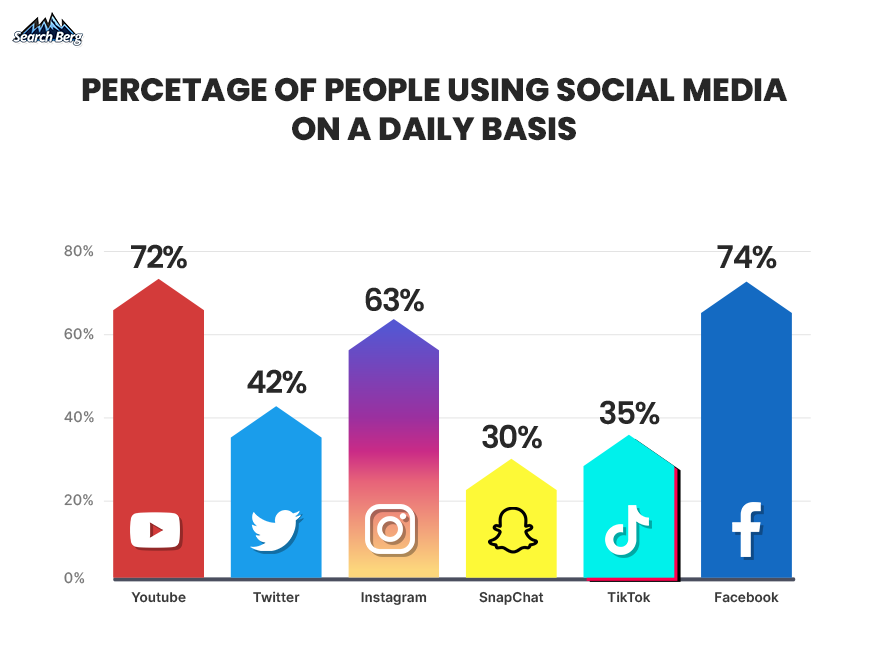
Social media and SEO are like the two strands of a DNA helix, winding around each other in a delicate dance. They may not directly influence each other, but they can collectively create a powerful synergy that propels your client’s online visibility to new heights.
- Boost Brand Awareness
When more users start searching for your client’s brand, Google takes notice. It starts associating your client’s brand with specific products, services, or keywords. The outcome? Your client’s business is more likely to pop up in relevant search results.
Take, for example, a new organic skincare brand, EarthGlow. They’ve launched an innovative range of products and want to make a mark in the already crowded skincare industry.
They start by sharing insightful posts about the benefits of organic skincare, behind-the-scenes snippets of their product-making process, and engaging photos of their products on Instagram.
Each post is strategically hashtagged to reach the right audience. Slowly but surely, users start noticing EarthGlow. They start searching for EarthGlow’s products online, which increases their brand-specific search volume and indirectly boosts their search rankings.
See how this works?
- Drive Traffic
If your client’s website is a treasure trove of valuable information, social media is the map that leads users to this treasure. By strategically sharing content from their website across various social media platforms, you’ll create multiple paths for users to return to the website.
The increase in website traffic is a clear indication to search engines that your client’s website holds value. What will happen? Search engines will be compelled to improve your client’s rankings on SERPs.
- Engage with Your Audience
Engagement is the backbone of any social media strategy. It’s not just about broadcasting messages; it’s about sparking a conversation, fostering relationships, and ultimately building a loyal community around your client’s brand.
High engagement levels indicate that users find your client’s brand valuable and trustworthy. They’re likely to perform brand-specific searches and indirectly boost SEO.
Let’s consider ‘BeFit’, a fitness app. They consistently engage with their followers on Instagram by sharing workout tips, answering questions about fitness and nutrition, and even featuring success stories from users.
This active engagement creates a sense of community among followers; they begin to view ‘BeFit’ as a credible and reliable fitness guide. This loyalty reflects in their online behavior; they’re more likely to search specifically for ‘BeFit’ workout plans or ‘BeFit’ diet tips on Google.
This increased brand search volume indirectly contributes to the brand’s improved SEO performance. Like clockwork.
When you start paying attention to the right factors, your clients will walk away happy, your profits will soar, and your SEO company’s credibility will skyrocket. All of this may sound pretty straightforward. But you can’t master this art without the most critical piece of the jigsaw puzzle: an experienced white label SEO company.
Strike Gold with Global-marketing Inc.’s White Label SEO Services
Finding a reliable white label SEO agency can sometimes feel like sifting through piles of fool’s gold in search of that one gleaming nugget of real gold.
The marketplace is teeming with agencies offering glittering promises of rapid search ranking ascension. But not all that glitters is gold.Some agencies offer quick fixes and one-size-fits-all solutions. Their shiny exteriors often conceal hollow strategies that lack true substance.
Global-marketing Inc. isn’t just another nugget in the pan; it’s a goldmine of comprehensive, customizable, and creative SEO strategies. We offer carefully mined and polished solutions that are as unique as your clients’ brands and their specific needs.
If you’ve been on the hunt for quality white label SEO for a while now, your hunt stops today. As a credible, established, and experienced white label SEO company, we help SEO resellers provide exceptional quality to their clients. Explore our white label SEO services to get started! It’s time to strike gold. And Global-marketing Inc.’s ready to show you the way!












